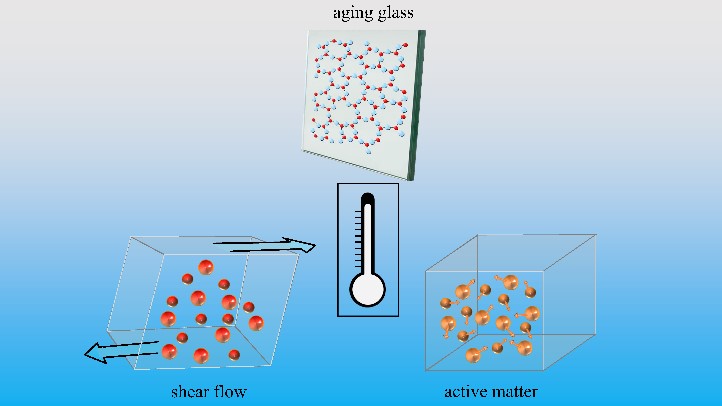
Ning Xu received his Ph.D. from Yale University in 2005. After graduation, he worked at University of Pennsylvania and University of Chicago as a postdoc follow till 2009. From July of 2009 to January of 2010 he worked as a research assistant professor at the Chinese University of Hong Kong. He has been a professor at University of Science and Technology of China since January of 2010, the deputy dean of School of Physical Sciences since September of 2014, and the chair professor since September of 2022. His main research interest is the fundamental studies of soft matter physics, including the transition from liquids to noncrystalline solids, the nature of disordered solids, crystallization and melting, nonequilibrium statistical mechanics, and mechanical metamaterials. He has authored about 60 papers.
Borrowing the fluctuation-dissipation theorem of equilibrium systems, we obtain a temperature-like quantity TIS for inherent structures. Interestingly, although it is calculated from nonequilibrium systems, TIS agrees with characteristic temperatures of the equilibrium counterparts, which are crystallization temperature of crystal-formers and onset temperature of glass-formers. We further find that TIS agrees with effective temperatures of slow-evolving systems, such as aging glasses, shear flows, and self-propelled flows. Therefore, previously discussed effective temperatures of slow-evolving systems are actually melting or onset temperatures, which are thus not thermodynamic temperatures. Our work shows the underlying connections between nonequilibrium and equilibrium systems and evidences the equivalence between onset and melting temperatures.

REFERENCES
[1] J. Zhang,# W. Zheng,# S. Zhang, D. Xu, Y. Nie, Z. Jiang, and N. Xu*, Sci. Adv. 2021, 7, eabg6766.